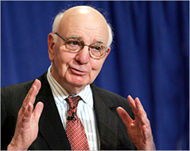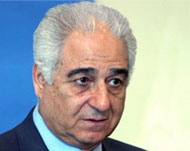Iraq oil probe to criticise UN
A yearlong investigation of the Iraq oil-for-food programme will fault almost every branch of the United Nations for widespread failure in the $64 billion operation and recommend urgent reform, according to a document released on Tuesday.

The Independent Inquiry Committee’s report, to be published on Wednesday, will criticise Secretary-General Kofi Annan, the UN Security Council and the overall management of the programme, according to the preface, released on the committee’s website.
It called for four central reforms, including the creation of a chief operating officer. The UN General Assembly should demand that the changes go into force no later than a year from now, the preface said.
“To settle for less, to permit delay and dilution, will invite failure, further erode public support, and dishonour the ideals upon which the United Nations is built,” the preface said. “The time for action is now.”
Overwhelmed by corruption
The conclusion by the committee, led by former US Federal Reserve chairman Paul Volcker, will be that the United Nations allowed the $64 billion humanitarian operation to be overwhelmed by corruption and inefficiency.
 |
|
Paul Volcker led the investigation |
It said Saddam Hussein used the largest, most ambitious humanitarian operation ever run by the United Nations to his advantage. Neither the UN Secretariat nor the UN Security Council was clearly in command, which led to “an evasion of personal responsibility at all levels”.
Annan’s failure to properly manage the programme will be a central focus, but there is no new “smoking gun” linking him to an oil-for-food contract awarded to a Swiss company that employed his son Kojo, the official said, speaking on condition of anonymity because the report had not been released.
Basic health care
The Independent Inquiry Committee’s final report will say the programme succeeded in providing minimal standards of nutrition and health care for millions of Iraqis trying to cope with tough UN sanctions imposed after Saddam’s 1990 invasion of Kuwait.
While the final report is expected to focus generally on UN problems, officials familiar with it said it will assign some blame more directly.
One senior official said Russia and France, whose companies had major oil-for-food contracts and for years were considered friendly to Iraq, will be criticised. As veto-wielding permanent members of the Security Council, both countries influenced the committee monitoring sanctions.
 |
|
Former oil-for-food chief Benon |
Former secretary-general Boutros Boutros-Ghali will also be criticised over allegations that came to light in one of the committee’s earlier reports, the official said.
Last month, Volcker’s team said it had uncovered enough evidence to prosecute two men suspected of helping former oil-for-food chief Benon Sevan in a kickback scheme. The two men are related to Boutros-Ghali.
A second official with knowledge of the report said the General Assembly, which includes all 191 UN member states, will also be criticised for failing to provide sufficient oversight.
Recommendations
The preface of the report makes four broad recommendations:
– Create the position of a chief executive officer, who would make sure in part that hiring decisions are made based on talent rather than political convenience.
– Establish an Independent Auditing Board to fully review UN programmes and hiring.
– Seek more effective coordination between UN agencies.
– Make sure the UN Security Council is clearer about the purpose and criteria for UN operations that it authorises.